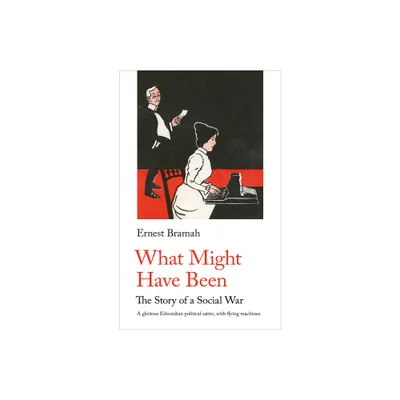Home
Homo Irrealis: The Would-Be Man Who Might Have Been: Essays
Loading Inventory...
Barnes and Noble
Homo Irrealis: The Would-Be Man Who Might Have Been: Essays
Current price: $18.00


Barnes and Noble
Homo Irrealis: The Would-Be Man Who Might Have Been: Essays
Current price: $18.00
Loading Inventory...
Size: OS
*Product Information may vary - to confirm product availability, pricing, and additional information please contact Barnes and Noble
The
New York Times
–bestselling author of
Find Me
and
Call Me by Your Name
returns to the essay form with his collection of thoughts on time, the creative mind, and great lives and works.
Irrealis moods are a category of verbal moods that
indicate that certain events have not happened,
may never happen, or should or must or are indeed
desired to happen, but for which there is no indication
that they will ever happen. Irrealis moods
are also known as counterfactual moods and include
the conditional, the subjunctive, the optative,
and the imperative—all best expressed in this
book as the might-be and the might-have-been.
One of the great prose stylists of his generation, André Aciman returns to the essay form in
Homo Irrealis
to explore what time means to artists who cannot grasp life in the present. Irrealis moods are not about the present or the past or the future; they are about what might have been but never was but could in theory still happen. From meditations on subway poetry and the temporal resonances of an empty Italian street to considerations of the lives and work of Sigmund Freud, C. P. Cavafy, W. G. Sebald, John Sloan, Éric Rohmer, Marcel Proust, and Fernando Pessoa and portraits of cities such as Alexandria and St. Petersburg,
is a deep reflection on the imagination’s power to forge a zone outside of time’s intractable hold.
New York Times
–bestselling author of
Find Me
and
Call Me by Your Name
returns to the essay form with his collection of thoughts on time, the creative mind, and great lives and works.
Irrealis moods are a category of verbal moods that
indicate that certain events have not happened,
may never happen, or should or must or are indeed
desired to happen, but for which there is no indication
that they will ever happen. Irrealis moods
are also known as counterfactual moods and include
the conditional, the subjunctive, the optative,
and the imperative—all best expressed in this
book as the might-be and the might-have-been.
One of the great prose stylists of his generation, André Aciman returns to the essay form in
Homo Irrealis
to explore what time means to artists who cannot grasp life in the present. Irrealis moods are not about the present or the past or the future; they are about what might have been but never was but could in theory still happen. From meditations on subway poetry and the temporal resonances of an empty Italian street to considerations of the lives and work of Sigmund Freud, C. P. Cavafy, W. G. Sebald, John Sloan, Éric Rohmer, Marcel Proust, and Fernando Pessoa and portraits of cities such as Alexandria and St. Petersburg,
is a deep reflection on the imagination’s power to forge a zone outside of time’s intractable hold.


















